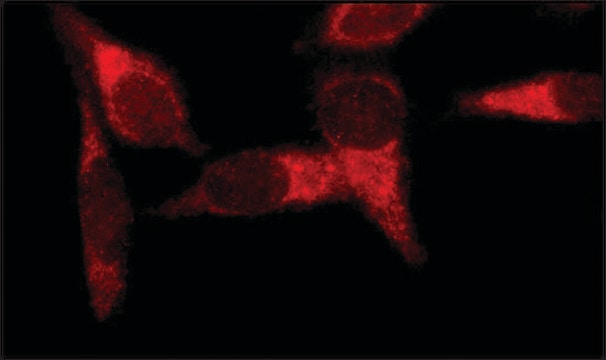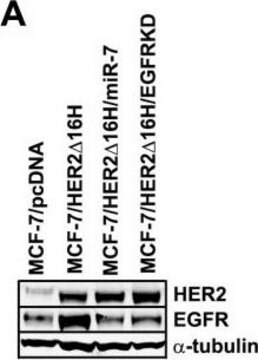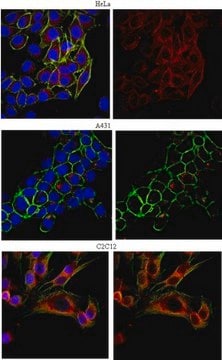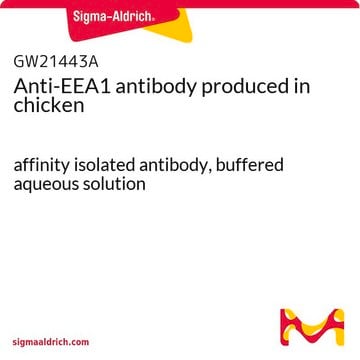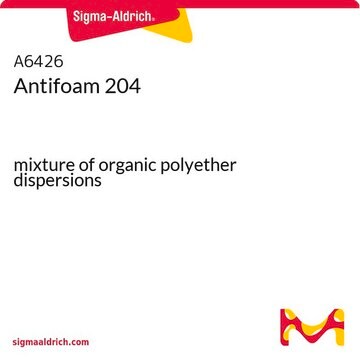E7659
Anti-EEA1 antibody, Mouse monoclonal
clone EEA1-N19, purified from hybridoma cell culture
Sinónimos:
Anti-MST105, Anti-MSTP105, Anti-ZFYVE2, Monoclonal Anti-Early endosomal antigen 1
About This Item
Productos recomendados
biological source
mouse
Quality Level
conjugate
unconjugated
antibody form
purified from hybridoma cell culture
antibody product type
primary antibodies
clone
EEA1-N19, monoclonal
form
buffered aqueous solution
mol wt
antigen ~160 kDa
species reactivity
human, mouse, rat
concentration
~1.0 mg/mL
technique(s)
immunoprecipitation (IP): suitable
indirect immunofluorescence: suitable
western blot: 1-2 μg/mL using whole extract of rat NRK cells
isotype
IgG2a
UniProt accession no.
shipped in
dry ice
storage temp.
−20°C
target post-translational modification
unmodified
Gene Information
human ... EEA1(8411)
mouse ... Eea1(216238)
rat ... Eea1(314764)
General description
Application
- immunoblotting
- immunoprecipitation
- cell fractionation
- indirect immunofluorescence
- immunohistochemistry
- Immunoprecipitation
- Indirect immunofluorescence
- Western blotting at a concentration of 1-2μg/mL using whole extract of rat NRK cells
Biochem/physiol Actions
Physical form
Disclaimer
¿No encuentra el producto adecuado?
Pruebe nuestro Herramienta de selección de productos.
Optional
Storage Class
12 - Non Combustible Liquids
wgk_germany
nwg
flash_point_f
Not applicable
flash_point_c
Not applicable
Certificados de análisis (COA)
Busque Certificados de análisis (COA) introduciendo el número de lote del producto. Los números de lote se encuentran en la etiqueta del producto después de las palabras «Lot» o «Batch»
¿Ya tiene este producto?
Encuentre la documentación para los productos que ha comprado recientemente en la Biblioteca de documentos.
Los clientes también vieron
Nuestro equipo de científicos tiene experiencia en todas las áreas de investigación: Ciencias de la vida, Ciencia de los materiales, Síntesis química, Cromatografía, Analítica y muchas otras.
Póngase en contacto con el Servicio técnico